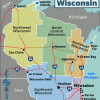The U.S. Department of Housing and Urban Development (HUD) has awarded nearly $4 million in to 11 entities for research regarding office property-to-residential conversions.
The Offsite Construction and Land Use Reform Notice of Funding Opportunity (NOFO) divided $3 million among 10 institutions to conduct research into the potential for off-site construction methods and zoning and land use reforms to increase the supply of quality affordable housing and reduce housing expenses for low- and moderate-income owners and renters. The Office to Residential Conversions Notice of Funding Opportunity (NOFO) awarded $858,261.91 to study recent efforts to convert downtown office buildings to properties with residential units since the start of the Covid-19 pandemic.
“The widening gap between housing supply and demand has driven up housing costs and constrained affordable choices for low-and moderate-income families.” said Solomon Greene, principal deputy assistant secretary for policy development and research at HUD. “We know that state and local leaders are at the forefront of innovative solutions, including using innovative construction technologies, adopting pro-housing zoning and land use reforms, and converting underutilized office and commercial buildings to housing. With these research awards, HUD aims to fill critical knowledge gaps, test pilots and new innovations, and share best practices in each of the areas.”
See the specific awardees include the following:
- The National Institute of Building Sciences was awarded $499,878 to partner with six HUD regions to design pilot programs that will both identify regional barriers to the adoption of off-site construction and develop strategic plans for off-site construction growth. These regional pilots will serve as the basis for a pilot handbook to spur other regions to foster off-site construction capacity and encourage uptake.
- The University of California, Los Angeles was awarded $458,340 to study the impact of accessory dwelling unit legalization and production in California on rents and prices, as well as to assess how legalization changes land values even for parcels that do not exercise the new development option.
- The University of California, Irvine, was awarded $343,244 to study the impact of California’s state-level reforms aimed at mitigating regulatory barriers obstructing the development of accessory dwelling units in the context of affirmatively furthering fair housing.
- The Urban Institute was awarded $263,874 to leverage its housing market forecast model to examine the interplay between local zoning reforms and their impact on housing costs and segregation.
- Purdue University was awarded $263,847 to study the role of building codes as a land-use restriction. The goal of the research is to provide greater clarity for state and local governments in determining how proposed revisions to the International Building Code and International Code Council would impact new supply and affordability in their jurisdictions.
- Louisiana State University was awarded $263,650.42 to conduct a life-cycle cost analysis of disaster-resilient affordable housing and identify improvements to the manufacturing and siting process of elevated, wind-resilient manufactured homes that could enable greater adoption of these homes, particularly in disaster-prone and underserved communities.
- The Manufactured Housing Institute was awarded $263,544.87 will examine the impact of local barriers on the placement of manufactured homes and propose necessary regulatory reforms to address these constraints.
- Washington State University was awarded $226,756.05 to focus on modular construction methods; specifically, this project aims to develop and demonstrate the design of modular mass timber hybrid construction to offer a solution that is more sustainable, affordable, and equitable for housing in the United States.
- ADL Ventures was awarded $219,143 to study the financing of industrialized off-site construction and identify ways to increase the industry’s access to capital.
- Lehigh University was awarded $196,722.42 to conduct a qualitative survey of ADU ordinances, cataloging best practices, design guidelines, pre-approved plans, and other financial incentives that contributed to the successful implementation of ADU reforms in small-to-medium-sized municipalities.
- Arthur Gensler Jr. & Associates, Inc. was awarded $858,261.91 to conduct a study that will analyze office to residential conversion activities in six cities, test the financial feasibility of these conversions, study policies and incentives, and build an online community guide to allow local policymakers to estimate the impact of potential conversion policies on their community.
















